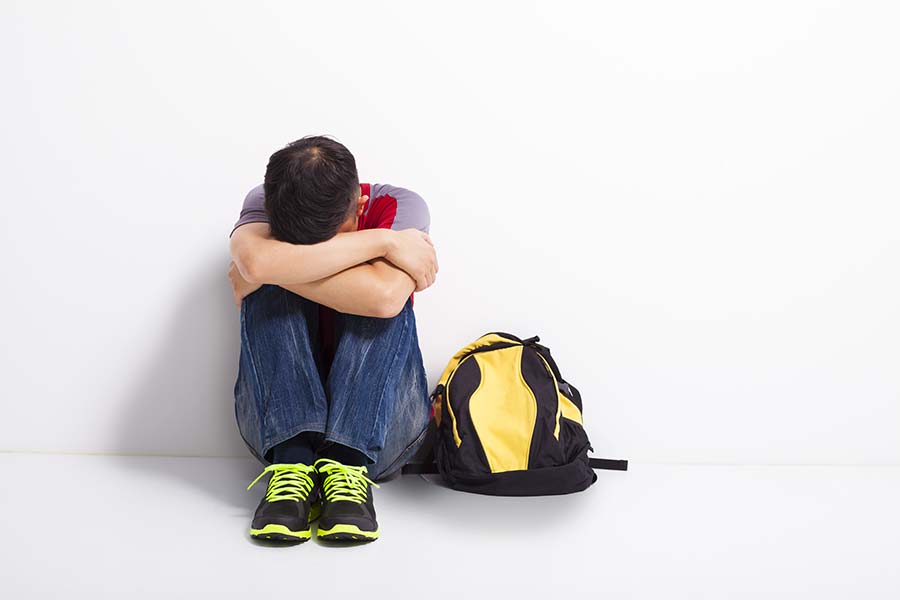Speak up Against the Bully
Writer: Chris Gerbasi
Disturbing reports of bullying and violence in schools are found in the news every day, involving everything from threats hurled across social media, to mass shooting plots, to youths driven to suicide under the crush of constant insults.
Bullying always has existed in schools—it’s an unfortunate fact of life. But national focus on the issue has mushroomed in recent years, and that’s a good thing for schools from an educational and preventive standpoint.
School districts, including those in Lake and Sumter counties, are armed with anti-bullying programs and policies backed by state statutes, changing how principals handle bullying and violence on campus.
Schools also are doing more to protect students’ privacy when issues arise, says William Roberts, principal at Lake’s Windy Hill Middle School.
“There’s a lot more attention,” he says. “In the past, students were more quiet about it. They feel more comfortable reporting things instead of internalizing it and keeping it to themselves.”
The Lake and Sumter student conduct codes have similar definitions for bullying, cyberbullying, and harassment, which include physical, verbal, written, or electronically transmitted or posted threats, taunts, insults, or psychological abuse that may cause bodily harm or degradation.
To combat bullying, the districts provide numerous programs to students to build character and modify behavior.
But it’s up to each school to use them, said Sebrina Dillon-Banks, administrative coordinator of Lake’s Safe Schools Department.
“The programs are only as effective as they are implemented,” she says. “If they’re implemented well, you’ll see results.”
Windy Hill uses the Bully-Proofing Your School program, in which counselors and administrators teach students to take a stand against bullying.
“It’s powerful and impactful because students ask questions, and they have the disciplinarians in their classroom,” William says.
Another successful program is PBS, or Positive Behavior Support, William says. Students are recognized for doing the right thing, from something small such as helping a fellow student get school supplies, to standing up to someone who is being mean. Rewards for students include field days and pep rallies.
“It’s a middle school campus—things happen,” William acknowledges. “But we focus so much on the positive, it really helps keep negative behavior at a minimum.”
The various programs are sponsored either by the districts or individual schools.
“I believe the combined programs bring about stakeholder awareness,” says Julie Robinson-Lueallen, principal at East Ridge High School in Lake. “These programs are run throughout the school year to help support positive student behavior.”
The Sumter School District’s programs include Olweus Bullying Prevention, and character education programs such as Project Wisdom, Character Connex, and Alive to Thrive.
Olweus is a survey asking students for anonymous opinions about the bullying climate in their schools, says Debbie Moffitt, senior director of curriculum. Their answers help schools assess needed improvements.
“We are not just academic people,” Debbie says. “We are that role model, teaching them to be good friends and good citizens.”
In Sumter, which includes eight schools, 11 bullying incidents were reported in 2015-16, down from 16 the year before, Debbie says. In Lake, which has 40 schools, there were 43 bullying cases and 49 harassment cases in 2015-16, Sebrina says.
At Wildwood Middle High School, principal Richard Hampton says he doesn’t encounter many serious bullying incidents, and the occasional fight usually stems from an isolated argument rather than persistent harassment.
Of course, school programs can’t eliminate all bullying, he says.
“I think they have been successful, but I don’t think there’s anything available to stop it,” Richard says. “The programs are not designed to eliminate it, because they know that’s an impossibility.”
Sorting out whether allegations constitute bullying can take a lot of time and effort, he says.
When incidents occur, administrators in each district follow similar procedures. Anyone—victim, witness, parent or educator—,may file a complaint in person or anonymously. An assistant principal investigates the complaint, and parents of the students involved are contacted within 24 hours. Interviews with the students are conducted discreetly and separately.
Once the investigation is completed, the assistant principal discusses the findings with the school principal, and they meet with the students and parents. If discipline is required, it may range from additional work assignments to detention, suspension, or expulsion, if the bullying is severe or repeated.
Creating a positive environment is a principal’s main goal, Richard says.
“The most important thing is communication, making sure the kids are able to feel comfortable enough to share if somebody is bothering them,” he says.

